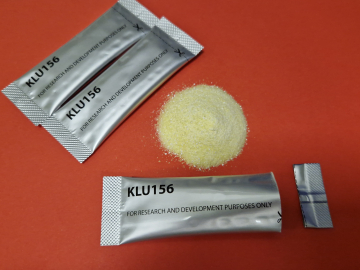Parties, Symptoms, Mysteries: An Early Monkeypox Patient in Portugal
LISBON — On a warm spring morning in late April, a young man entered a health center outside Portugal’s capital city.
S., a 25-year-old Brazilian national who’s been living in Portugal for 3 years and working as a model, had been feeling sick for few weeks before he finally decided to look for help. [Ed. Note: GHN is using an initial to preserve confidentiality.] “I had a number of different symptoms at different times,” he says. “In the beginning of April, I went to the Canary Islands for a party but even before the trip I was not feeling well.” He took some antibiotics, but they didn’t help. He thought he had mononucleosis.
Then, pustules erupted all over his body. “It was very painful. I have now recovered but I have many scars,” he says.
S. does not know how and when he got monkeypox, but he may be one of the first cases of the outbreak in Portugal.
After the Canary Islands trip, S. had intimate contact with 2 men. One of them later went to Italy, and the other was a man from Angola living in Lisbon. The man who went to Italy never developed any symptoms, but the one from Angola did.
Francisco Silva, MD, a general and family medicine practitioner working at Via Verde Saúde Seixal in Corroios, examined S. in late April before other patients had been diagnosed with monkeypox. “I did all the tests I could think of, and everything came back negative. I did not know what S. had but I knew it was something unusual,” Silva says.
Then more cases began appearing. At first no one could tell for sure what those patients had; all of them were young men with fever and pustules. “In 20 years of clinical practice, I had never seen a case of monkeypox,” says Candida Ferreira, MD, a dermatologist and head of the sexually transmitted diseases division at Hospital Santo Antonio Dos Capuchos in Lisbon.
Monkeypox was not among the options initially considered. Only after tests results for HIV, herpes simplex, syphilis, gonorrhea, and other infectious diseases came back negative, did the health care team decide to do a biopsy. Then, a virus from the family of Poxviridae virus was detected.
“Not the virus or the disease are new. What is new is the fast spreading of monkeypox across Europe, and other countries” said Miguel Viveiros, PhD, a professor of biological sciences and medical microbiology and vice-director and president of the Pedagogical Council of the Institute of Hygiene and Tropical Medicine of Nova University Lisbon. Human monkeypox was first detected in Africa in 1970, and outbreaks of it are still common in West and Central Africa. In 2018 and 2019, individuals infected with monkeypox were identified in the UK, Israel, and Singapore. In 2021, 2 cases were identified in the U.S. All of the cases were linked to travel in endemic areas or exposure to others who had traveled to Africa or who had been infected.
As of June 1, there have been 606 confirmed monkeypox cases in 26 countries. Portugal currently has the third highest number of confirmed cases of any country—119 (all males between 20 and 61 years old), according to the country’s Directorate-General for Health. “We do not yet know who Patient Zero is or whether there was only one introduction of the virus in Portugal. Maybe there was more than one patient infected that went to different countries,” said Vitor Duque, MD, director of the Infectious Diseases branch at University Hospital in Coimbra and the president of the Portuguese Society of Virology.
At this point, no one can explain what has led to the current outbreak. But many hypotheses have been raised. Clarissa Damasso, PhD, a virologist at the Federal University in Rio de Janeiro, an advisor to the Advisory Committee on Variola Research and a specialist in poxviruses, suspects a combination of factors… and bad luck. “I think, and this is my opinion, that there was a person who was infected in an endemic area” and entered Europe not experiencing symptoms or even knowing they were infected, Damasso says. They may have gone to the Canary Islands in April and May, joining a large party that could have become a superspreading event.
Miguel Prudencio, PhD, a principal investigator at Instituto de Medicina Molecular João Lobo Antunes and professor of microbiology at the Medical School at Lisbon University, is considering several hypotheses that would explain the spread of monkeypox in Europe. “First, there is the ecological niche that was left void by the eradication of the variola virus [smallpox],” Prudencio says. It is possible the monkeypox virus spread into an ecological niche previously held by the smallpox virus.
“Also, we need to remember that before the eradication of smallpox most kids were regularly vaccinated against it,” Prudencio says, “and the vaccine also protected against other viruses in the Poxviridae family, including monkeypox.”
Most people do not have immunity against Monkeypox and thus are more vulnerable to getting infected and developing disease. Another hypothesis: The monkeypox virus may have undergone changes that made it more adapted to humans.
A detailed analysis of the monkeypox genome sequence first made available by a team of investigators at the National Health Institute Doutor Ricardo Jorge in Portugal and then by investigators in other countries may soon shed light on the possibility of genetic changes that have facilitated transmission.
Marcia Triunfol, PhD, is a Lisbon-based science writer and editor.
Ed. Note: This article is part of Global Health NOW’s Local Reporting Initiative, made possible through the generous support of loyal GHN readers.
Join the 50,000+ subscribers in over 170 countries who rely on Global Health NOW summaries and exclusive articles for the latest public health news. Sign up for our free weekday newsletter, and please share the link with friends and colleagues.
Portugal’s first monkeypox patients were diagnosed at Hospital Santo Antonio Dos Capuchos in Lisbon in early May. Marcia Triunfol




